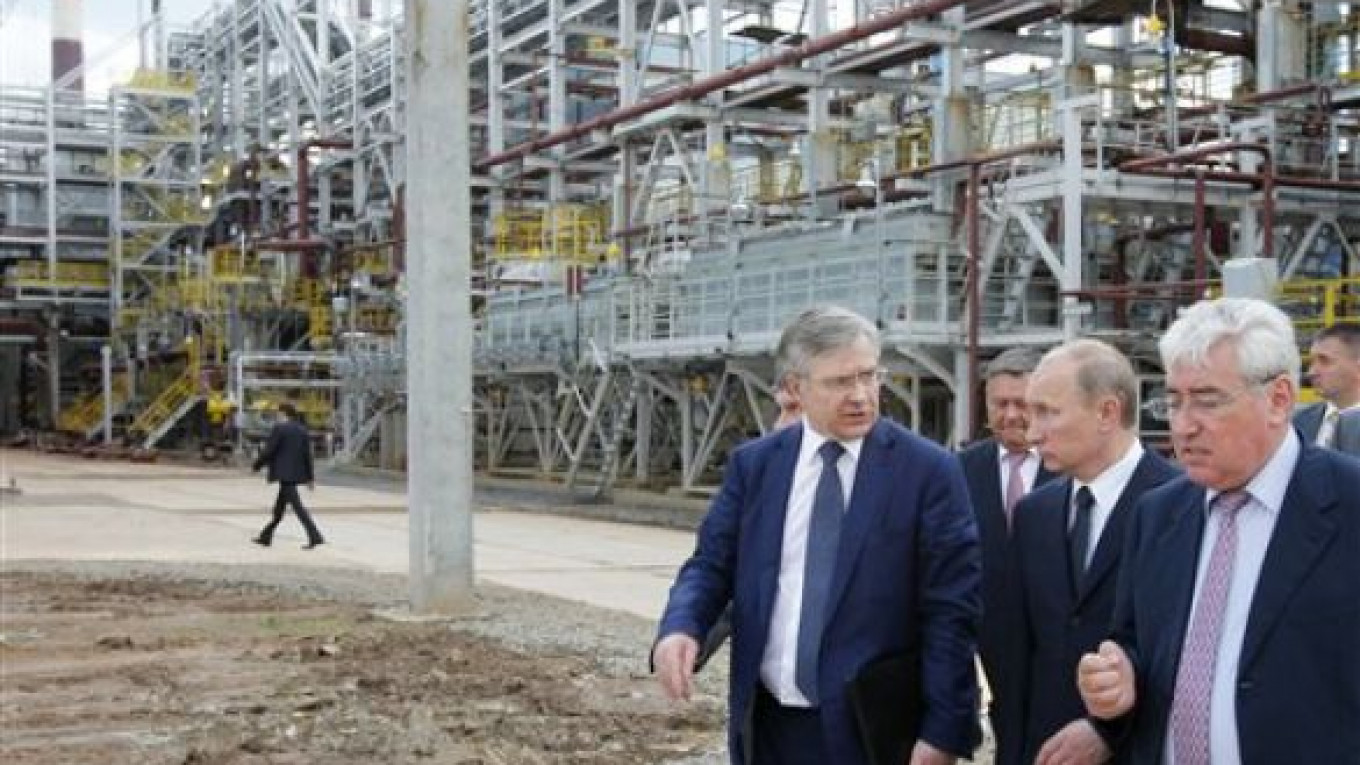Prime Minister Vladimir Putin backed a reduction in crude oil export taxes at the expense of higher duties on refined-product shipments designed to boost output while ensuring that the state's coffers don't lose out.
Putin wants the government to submit a proposal on implementing the so-called 60-66 measure in two weeks, he told reporters Friday in Kirishi, Leningrad region. That would lower oil export taxes to 60 percent from 65 percent while setting the levy on oil product exports at 66 percent of the crude rate.
Oil taxes are the single biggest contributor to the state budget, and Putin has tasked the industry with keeping production above 10 million barrels per day for at least a decade. Deputy Finance Minister Sergei Shatalov said Thursday that the 60-66 measure may be delayed beyond Aug. 1 as Bashneft, Tatneft and TAIF seek redress for potential refining losses.
Oil output of as much as 509 million tons is forecast in 2011, Putin said, the equivalent of 10.2 million bpd. That's little changed from last year's level of 505.13 million tons.
Separately, Russia will set up a stockpile of crude oil and refined products to help smooth price volatility, according to Putin. The state may start a fund to intervene in oil product markets as a buyer or a seller to regulate prices, modeled on grain markets, he said.
Refining obligations should be laid down for licenses to oil fields with reserves of more than 5 million tons, he said. Companies should be required to supply oil products to the domestic market in proportion to their crude output.
Russia must retain a protective export duty on gasoline, including straight-run gasoline, to prevent a rush of exports, Deputy Economic Development Minister Stanislav Voskresensky said Friday.
"We have one type of duty, which was introduced not long ago, on gasoline and straight-run gasoline, which is 90 percent of the crude duty," Voskresensky told the industry meeting chaired by Putin. "In this situation, it must be retained."
A new duty model, which sets the coefficient for calculation of crude export duty at 60 percent and light products at 66 percent of the crude duty, needs "reworking" for higher oil, prices, he said.
Igor Artemyev, head of the Federal Anti-Monopoly Service, also said he opposed cuts in the light product duty.
(Bloomberg, Reuters)
A Message from The Moscow Times:
Dear readers,
We are facing unprecedented challenges. Russia's Prosecutor General's Office has designated The Moscow Times as an "undesirable" organization, criminalizing our work and putting our staff at risk of prosecution. This follows our earlier unjust labeling as a "foreign agent."
These actions are direct attempts to silence independent journalism in Russia. The authorities claim our work "discredits the decisions of the Russian leadership." We see things differently: we strive to provide accurate, unbiased reporting on Russia.
We, the journalists of The Moscow Times, refuse to be silenced. But to continue our work, we need your help.
Your support, no matter how small, makes a world of difference. If you can, please support us monthly starting from just $2. It's quick to set up, and every contribution makes a significant impact.
By supporting The Moscow Times, you're defending open, independent journalism in the face of repression. Thank you for standing with us.
Remind me later.






